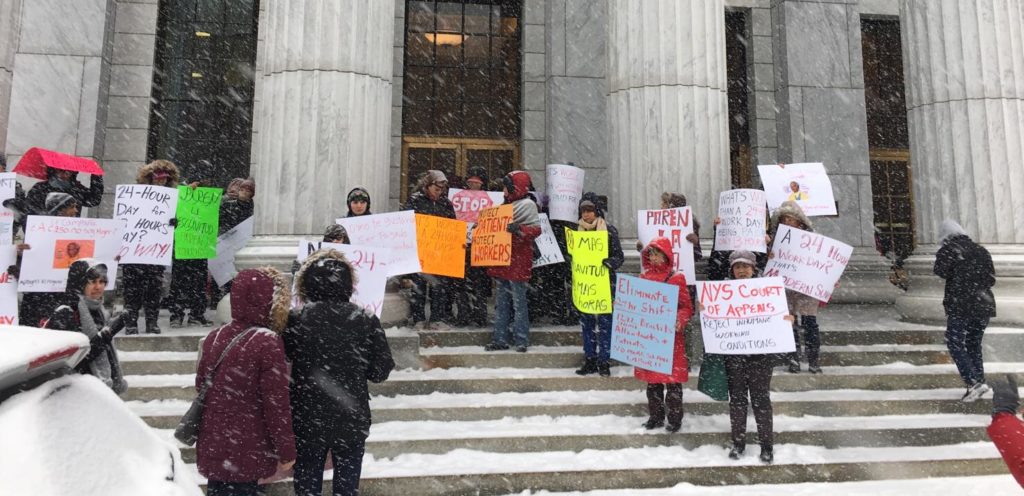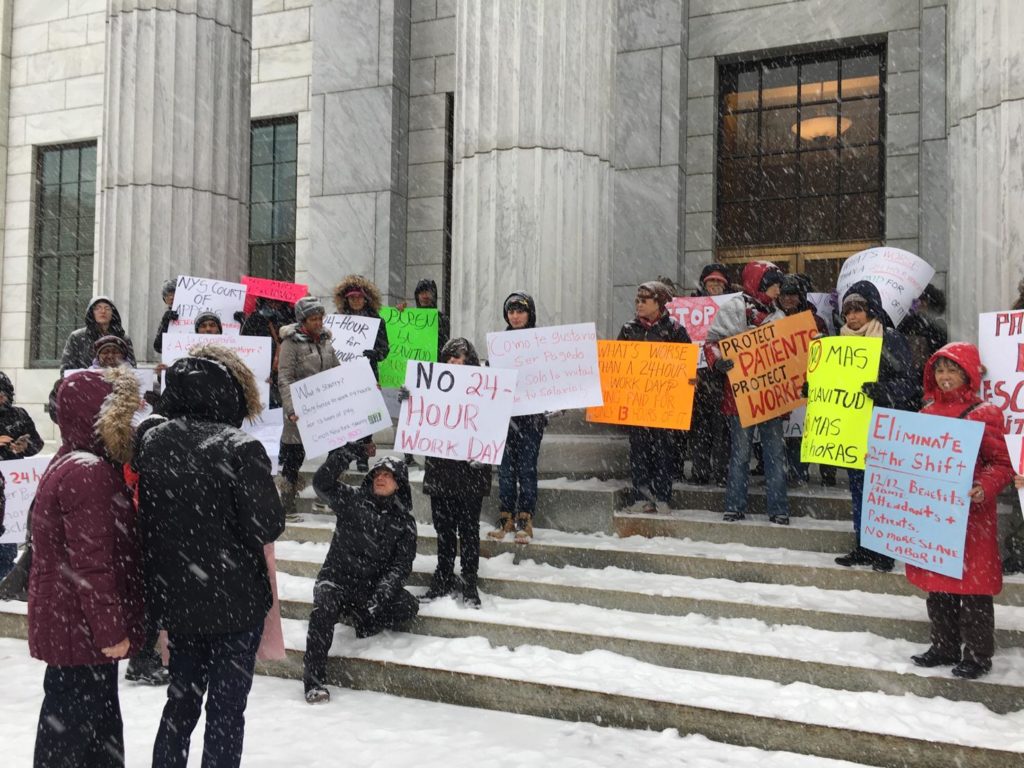The back-and-forth legal battle to decide whether live-in home care aides in New York who work for an agency should be paid for the full 24 hours on the job instead of the current standard of 13 appears to be winding down.
The New York Court of Appeals heard oral arguments last Tuesday for Andryeyeva V. New York Health Care Inc. and Moreno V. Future Care Health Servs. Inc.
The state’s highest court is now expected to issue a decision within the next 30 days, legal experts told Home Health Care News.
“What we know thus far is that there have been several dozen challenges starting in 2016 where plaintiffs and worker-advocacy groups have alleged that a longstanding New York regulation only applies to [home care] aides who live on the premise of their employers — and not aides who work for an agency and have a home of their own,” Emina Poricanin, a home care attorney and partner at legal firm Hodgson Russ, told HHCN. “It’s a very bleak outlook for providers should the decision come out against the industry.”
In addition to ruling how aides who work 24-hour shifts should be compensated, the court’s decision may also mean home care agencies would have to pay years’ worth of retrospective wages — which many providers would be unable to afford.
“The providers are really in a bind,” Poricanin, who also serves as general counsel for the New York State Association of Health Care Providers, said. “There is no money for New York State to bail them out should there be an adverse decision.”
Oral arguments took place Feb. 12 in Albany during a winter storm advisory.
 Courtesy of Emina Poricanin
Courtesy of Emina PoricaninDespite the inclement weather, the “politically charged” courthouse was full of home care industry representatives, workers, advocates and other stakeholders, Poricanin said.
The New York Court of Appeals was in the position to hear the oral arguments after two appellate-level decisions had previously deviated strongly from state Department of Labor interpretations and practices. The Department of Labor issued an emergency regulation in October 2017 affirming the 13-hour compensation practice for residential and non-residential aides, but the emergency regulation was invalidated by a trial court judge several months later.
Judges last Tuesday did not seem particularly interested in the fiscal impact that the affirmation of the two cases would have, Poricanin said, noting that they appeared to focus more on whether they should give deference to the Department of Labor in how it enforces its own regulations.
“If the Court of Appeals rules that aides in these cases must be paid in 24 hours per the regulation, we hope the New York Department of Labor will act swiftly and promulgate a regulation that clearly says aides only have to be paid for 13 hours — irrespective of whether they’re live-in or non-live-in aides,” Poricanin said.
The state Department of Labor submitted an amicus brief in support of the 13-hour rule and, during oral arguments, an attorney for the Department argued in favor of affirming the 13-hour rule.




